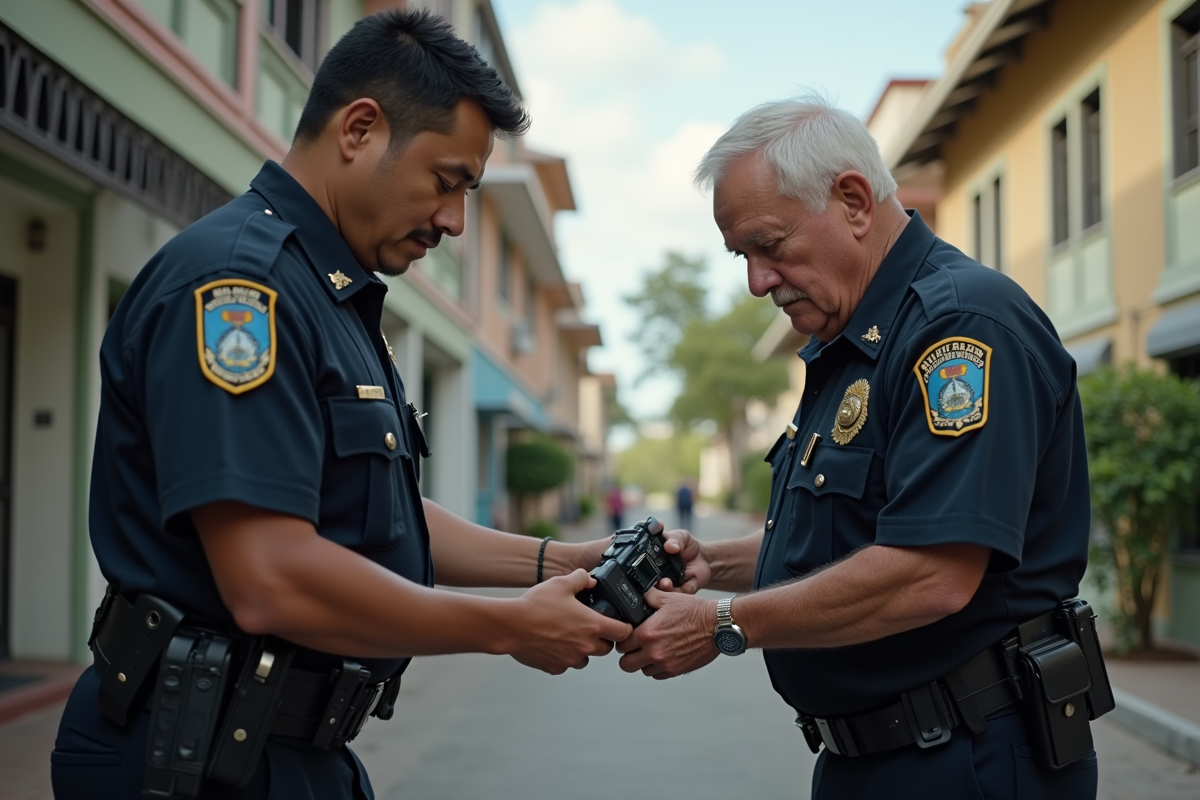
Meta Description: Analysis of 68 bills across 20 states reveals divergent approaches to police reform, from enhanced training protocols to qualified immunity debates. Explore regional variations and demographic impacts.
Content:
As state legislatures respond to evolving public safety demands, a recent surge of bills reveals diverging approaches to law enforcement reform. With 68 related proposals across 20 states filed within a single month, policymakers are grappling with balancing officer protections, community accountability, and systemic modernization.
Core Policy Objectives
Three primary objectives emerge from the legislation:
- Enhanced Training Requirements (38 bills)
- Accountability Mechanisms (22 bills)
- Officer Protections (18 bills)
Connecticut's HB05203 exemplifies protection-focused legislation by restoring qualified immunity for officers, while Hawaii's SB813 mandates psychological screenings and bans chokeholds except in life-threatening situations. New York's S01879 expands transparency by requiring federal officer inclusion in misconduct databases.
Affected Populations
Reforms disproportionately impact:
- Black/African American communities: 74% of analyzed bills show potential racial equity implications
- Law enforcement veterans: 63% of training bills contain age-specific adaptation requirements
- Immigrant populations: 41% of certification bills address residency requirements
Mississippi's HB1978 creates a public officer misconduct database aiming to increase transparency, while Nebraska's LB276 bans no-knock warrants - measures directly responding to high-profile cases involving minority communities.
Regional Divergence
Northeast States favor accountability:
- New York's A01861 requires personal liability insurance for officers
- Massachusetts considers mandatory crisis intervention training
Southern States emphasize officer protections:
- Florida's HB0175 enhances penalties for assaulting officers
- Texas expands qualified immunity through HB1866
Western States pilot hybrid approaches:
Implementation Challenges
The legislation cluster reveals three key hurdles:
- Funding gaps: 82% of training bills lack dedicated revenue streams
- Data integration: 67% of accountability measures require cross-jurisdictional record sharing
- Workforce impacts: 58% of states report concerns about recruitment declines
Indiana's HB1549 attempts to address training costs through state-funded academies, while Virginia's SB1479 streamlines cross-state certification processes.
Historical Context
Current reforms build on 2020's policing overhaul efforts but reveal shifted priorities:
- 2015-2020: 72% of bills focused on body cameras
- 2021-2024: 68% addressed mental health training
- 2025 Cluster: 53% concentrate on officer retention/protections
Future Outlook
Three trends likely to emerge:
- Federal incentives for standardized training curricula
- Increased litigation around qualified immunity provisions
- Growth of hybrid civilian-officer responder models
Illinois' HR0040 establishing mental health tracking for officers suggests coming focus on occupational health reforms. Meanwhile, Oklahoma's HB2083 testing dual-role officers may preview personnel model innovations.
As these 68 bills progress through committees, their collective impact could reshape American policing's fundamental operations. The simultaneous push for enhanced accountability and strengthened protections creates complex implementation challenges that will likely dominate criminal justice debates through 2026.
Related Bills
Requires police officer training programs on interacting with individuals with a disability with special emphasis on the techniques needed to improve interactions with individuals that are blind or deaf or hard of hearing; provides such training shall be created in consultation with the justice center for the protection of people with special needs.
No-knock warrants; prohibit issuance of.
Relating To Recordings Of Law Enforcement Activities.
"Trust in Law Enforcement Act"; require Department of Public Safety to create public database on officer misconduct.
Concerns training for law enforcement officers.
Board on Law Enforcement Officer Standards and Training; require law enforcement agencies to report terminated officers to.
Requires police officers to report the misconduct of a police officer; requires the division of criminal justice to establish a protocol to be followed by police agencies when handling and recording mandatory reports of misconduct by a police officer; establishes the crime of failure to report misconduct by a police officer.
Missing persons-reporting requirement.
An Act Concerning The Expansion Of The Crisis Initiative Pilot Program Throughout The State.
Prohibits the use of cell-site simulators by law enforcement officers; provides a right of action for violations of such prohibition.
Related Articles
You might also be interested in these articles
